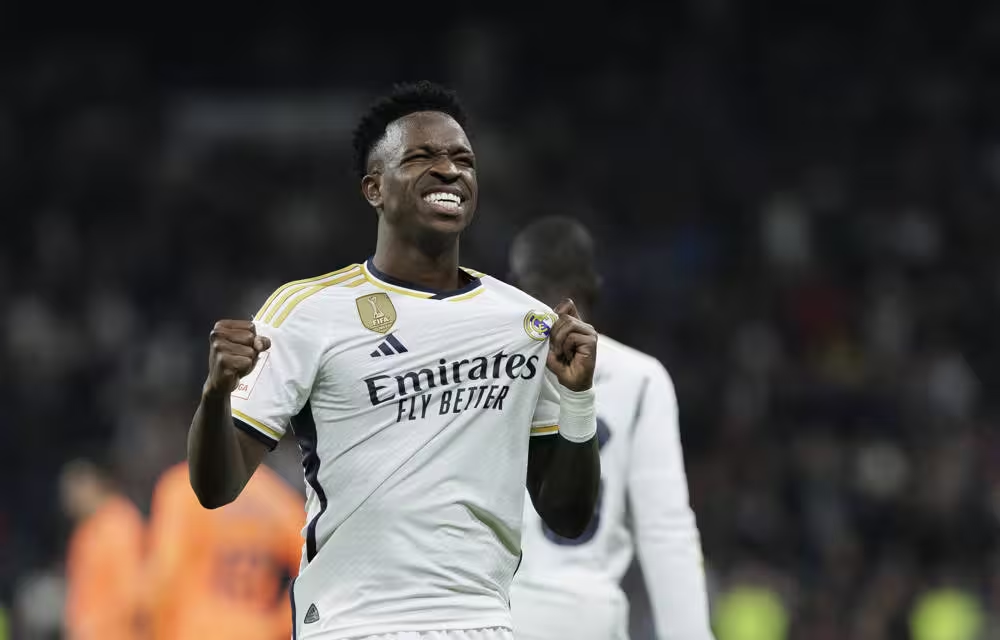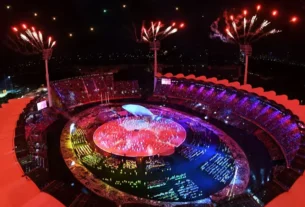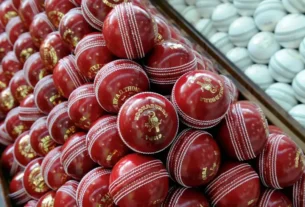Vinicius Jr., the Brazilian sensation and Real Madrid star, has become more than just a football player to fans and supporters worldwide. His journey, marked by stunning performances and individual brilliance on the field, is equally defined by his fierce resilience in the face of societal and racial adversities. “Him against the world” perfectly encapsulates his story—a tale of a young talent battling not only his opponents but also the systemic issues that persist beyond the pitch.
Rising Stardom with Unmatched Flair
Vinicius José Paixão de Oliveira Júnior, known widely as Vinicius Jr., was born in São Gonçalo, Brazil, an area not far from Rio de Janeiro. His early life was modest, and his rise to stardom in Brazil’s competitive football ecosystem came through sheer talent and relentless dedication. Joining Flamengo at just ten years old, he quickly showed extraordinary promise, a spark that eventually caught the eye of Real Madrid. By 2018, Vinicius made his move to Madrid as one of the world’s most-watched young players.
This young Brazilian star brought a unique flair to European football, blending samba-inspired dribbling with lightning speed and sharp instincts. His ability to weave past defenders and create opportunities put him on par with seasoned players in La Liga, Europe’s top-flight leagues. Yet, his success and style also made him a target for rivals, not only due to his football prowess but also due to the underlying societal challenges that persist in the sport.
Confronting Racial Abuse
Despite his immense skill, Vinicius’s journey has been marred by episodes of racial abuse. In Spain, he has faced multiple instances of fans hurling racial slurs from the stands. During La Liga matches, some fans have gone so far as to throw bananas or chant derogatory phrases. These incidents have brought international attention to the issue of racism in European football, casting a spotlight on La Liga and its approach to tackling discrimination in the sport.
The abuse reached a boiling point during a match against Valencia in May 2023, where Vinicius was the target of racially charged slurs. His visible frustration during the game reflected the immense emotional toll that this continuous discrimination has taken. His reactions on the pitch demonstrated that his fight was no longer just about football—it was about standing up to the abuse that plagues not only him but also countless athletes of color worldwide.
Vinicius’s Response and the Global Outcry
Vinicius did not stay silent in the face of this abuse. He used his platform to call attention to the issue, pointing out the insufficient response by La Liga officials. His posts on social media condemned the league’s inaction, questioning the lack of firm consequences for fans who engage in such abhorrent behavior. His stand against racism transcended the sports world, sparking an outpouring of support from fellow athletes, celebrities, and fans globally.
Brazil’s government and prominent figures across sports and media expressed their solidarity with Vinicius. Neymar, Kylian Mbappe, and other influential players echoed his sentiments, calling for stronger actions against racial abuse. Real Madrid also stood firmly behind their star, vowing to protect him and support his efforts in making football a more inclusive and respectful space.
The Broader Fight for Justice in Football
Vinicius’s case has shed light on systemic issues within football and the need for change at both institutional and grassroots levels. While FIFA and UEFA have anti-racism campaigns, critics argue that such initiatives often lack effective enforcement. In many cases, players subjected to abuse are left feeling isolated and unsupported by the very organizations that should safeguard their rights and well-being.
For Vinicius, this fight is personal. As a young Black man, his experience resonates with millions of fans who see themselves in him and who understand the weight of discrimination. He has become a symbol of resilience and defiance against bigotry, inspiring a new generation to demand more accountability from sports institutions.
Using His Platform to Inspire Change
Vinicius Jr.’s journey reveals the dual role he must play as both an athlete and a social advocate. Football stars today are global icons whose influence extends far beyond the pitch. Like LeBron James, Serena Williams, and other prominent athletes who have used their platforms to speak out against inequality, Vinicius has taken on the mantle of fighting for a cause greater than his career.
His activism brings attention to the need for stronger policies and educational programs that emphasize diversity, equity, and inclusion in sports. Some experts suggest that football leagues worldwide could benefit from initiatives that promote awareness and understanding among fans and players alike. Vinicius’s efforts remind the world that sports and social progress can—and should—go hand in hand.
Real Madrid’s Role and Support
Real Madrid, a club with a rich history and a massive following, has backed Vinicius at every step. The club’s management condemned the racial abuse directed at him, while teammates rallied around him in solidarity. This response from one of the most successful clubs in the world underscores the importance of institutional support for players facing discrimination. Real Madrid’s public stance not only reflects its commitment to Vinicius but also sets an example for other clubs to take a firm position against racism in all its forms.
Real Madrid’s support has shown how a football club can be a powerful ally in this fight. Their backing allows Vinicius to focus on his game without constantly looking over his shoulder, knowing that the organization has his back. It’s a bond that goes beyond contracts and sponsorships, reflecting the moral responsibility that clubs bear toward their players.
The Legacy of Vinicius Jr.’s Fight
Vinicius Jr.’s fight has transcended the football world, inspiring people from all walks of life to stand up against racial discrimination. His message is clear: talent and passion should not come with the price of enduring hate. For young athletes who look up to him, Vinicius has become a beacon of hope and a reminder that they, too, deserve respect and dignity on and off the field.
As he continues to excel, his journey stands as a testament to courage and resilience. Vinicius’s story reminds us that while football is often seen as a world unto itself, it reflects the broader societal issues we face. His fight against racism and his insistence on justice show the power of sports as a platform for positive change and social progress.
In the future, Vinicius’s story may be remembered not only for the records he set or the goals he scored but for the impact he made on the culture of football itself. His struggle has illuminated the path forward, challenging institutions and individuals alike to make football a truly inclusive sport for all. And in this battle, he stands not just as a player but as a symbol of enduring strength, proving that sometimes, a single voice can spark a movement.





